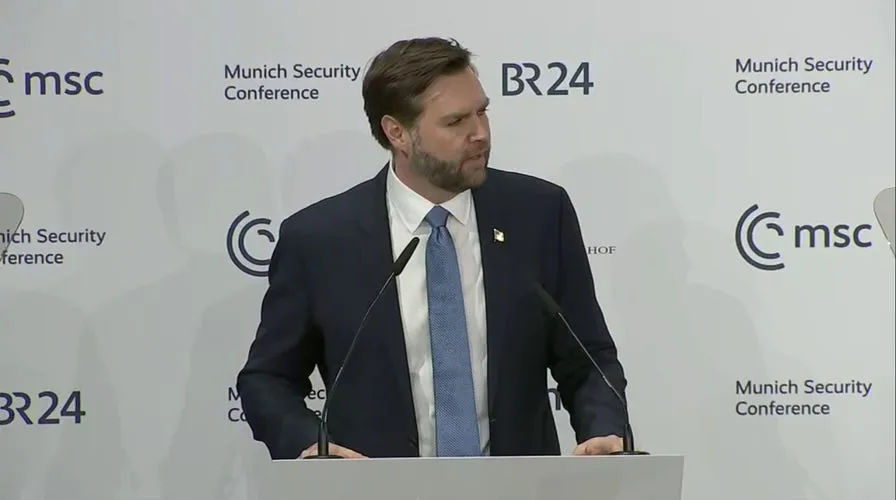Introduction
In an unprecedented move, the U.S. Department of Justice (DOJ) has admonished a foreign judge in relation to a case that touches upon the core principles of free speech and platform moderation. This statement coincides with rising tensions in Brazil surrounding a significant Supreme Court ruling that has sparked international scrutiny and debate. Rumble, a video-sharing platform, finds itself at the center of this legal tumult, one that raises questions about the balance of power and respect for judicial independence in different nations.
The Role of Rumble in the Free Speech Debate
Founded in 2013, Rumble has positioned itself as a platform that champions free speech, attracting creators and users disillusioned by the content moderation practices of larger platforms like YouTube. The platform allows users to share a variety of content, often embracing perspectives that are scrutinized or banned elsewhere. This commitment to free speech has made Rumble the focal point in ongoing discussions about digital rights and responsibilities.
However, the platform’s rapid growth and its association with controversial figures and narratives have made it a target for regulatory scrutiny, both domestically and internationally. The DOJ’s recent admonishment underscores the complicated web of international law, commerce, and free speech that Rumble represents. The case in question involves a foreign judicial proceeding that questions Rumble’s practices and its implications for free expression.
Understanding the DOJ’s Unprecedented Admonishment
The decision by the DOJ to publicly admonish a foreign judge is notable for several reasons. Traditionally, the U.S. government has refrained from intervening in the judicial affairs of other nations, especially in matters of free speech and expression, which, while often contentious, are typically left to the jurisdiction of each sovereign state.
This situation arose from a Brazilian Supreme Court ruling that targeted misinformation and hate speech, measures that critics argue undermine free expression. The judge involved has faced backlash from various groups, including proponents of free speech who argue that such measures are a slippery slope towards censorship.
The DOJ’s statement serves as both a defense of Rumble and a sharp rebuke of the judicial practices in Brazil, signaling a growing trend where free speech supplanting legal precedents is becoming a flashpoint for international relations. Analysts speculate that the U.S. government’s involvement in this case reflects a desire to uphold what it perceives as fundamental rights – even when they intersect with the laws of another country.
Brazil’s Response: Lula’s Commitment to the Supreme Court
In the wake of the DOJ’s statement, Brazilian President Luiz Inácio Lula da Silva (commonly known as Lula) declared his intention to defend the country’s Supreme Court against what he views as external interference. Lula’s government has been under intense scrutiny, particularly regarding its handling of democracy and freedom of expression.
The Brazilian Supreme Court has a contentious history, especially in its recent interpretations surrounding misinformation and government accountability. Lula has repeatedly emphasized that Brazil’s democracy is robust enough to withstand outside pressures and that any criticism of its judiciary reflects a misunderstanding or misrepresentation of judicial independence in Brazil.
De Moraes and His Trust in Brazilian Democracy
Justice Alexandre de Moraes, a prominent figure in the Brazilian Supreme Court, has been a target of criticism for his hardline stance on misinformation and platforms like Rumble. His tenure has been marked by significant rulings aimed at curbing what the court views as destabilizing narratives that threaten the democratic order in Brazil.
De Moraes has expressed confidence in Brazil’s capacity to manage its affairs without external interference, stating that democracy has internal checks that must be respected. He argues that while free speech is a right, it should not come at the expense of public safety or the democratic framework. The pushbacks from the DOJ could be perceived as undermining this very fabric of judicial independence that Brazil cherishes.
The Tension Between Free Speech and Misinformation
This situation highlights a critical global conversation about the balance between free speech and the proliferation of misinformation. While platforms like Rumble argue for unrestricted expression, critics suggest that some content endangers public trust and safety. The Brazilian Supreme Court’s approach reflects a growing global concern over the impact of misinformation on democracies worldwide.
Countries like Brazil are navigating how to enforce laws against misinformation while still respecting citizens’ rights to free speech. The conflict between the DOJ’s admonishment and Brazil’s judicial system exemplifies the ongoing struggle between protecting free expression and managing the potential societal harms of unchecked misinformation.
The Implications on U.S.-Brazil Relations
The DOJ’s action and Brazil’s responsive rhetoric point to a potential strain in U.S.-Brazil relations amid global discussions on democracy, freedom, and justice. Brazil’s ability to manage its internal affairs without perceived meddling from the U.S. is a matter of national pride for many Brazilians and can shape the contours of diplomatic relations moving forward.
This situation also paves the way for broader discussion about how nations enforce digital governance, especially in the face of rapidly evolving technologies and platforms that can escalate misinformation far beyond traditional media’s reach. As several countries grapple with similar challenges, this case may serve as a benchmark for how international law interacts with national policy on freedom of speech.
Conclusion
The interplay between Rumble, the DOJ’s admonishment of a foreign judge, and Brazil’s judicial independence encapsulates pressing issues around free speech, misinformation, and international law. The tensions arising from this case will undoubtedly continue to influence discussions about the boundaries of speech and the responsibilities of digital platforms.
As the situation unfolds, it will be vital for both U.S. and Brazilian leaders to navigate this complex landscape with a keen sensitivity to the implications of their actions on democracy and justice, not only within their borders but also on the wider global stage.







